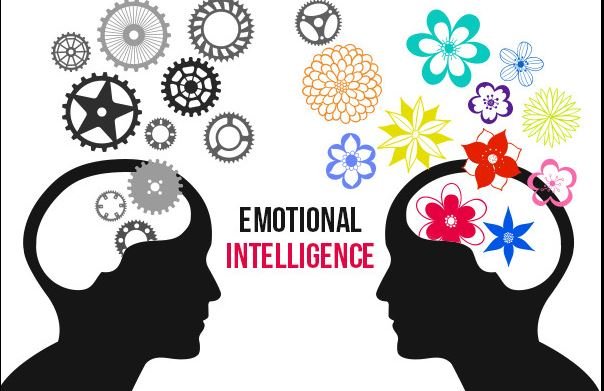Haptonomie, the science of affective touch and emotional connection, plays a significant role in developing emotional intelligence. By fostering emotional awareness and enhancing interpersonal skills, Haptonomie helps individuals build stronger, more empathetic relationships.

Enhancing Emotional Awareness
Promoting Self-Awareness
Haptonomie encourages self-awareness through the practice of intentional touch. By focusing on bodily sensations and emotional responses, individuals become more attuned to their inner experiences. This heightened self-awareness is a crucial component of emotional intelligence, allowing individuals to recognize and understand their emotions more effectively.
Cultivating Emotional Expression
Expressing emotions can be challenging for many individuals. Haptonomie facilitates emotional expression by providing a safe and supportive environment for individuals to explore and articulate their feelings. This practice helps individuals develop the ability to communicate their emotions clearly and constructively, an essential aspect of emotional intelligence.
Building Empathy and Interpersonal Skills
Fostering Empathy
Empathy, the ability to understand and share the feelings of others, is a key element of emotional intelligence. Haptonomie enhances empathy by promoting affective touch and emotional connection. Through shared experiences of touch and support, individuals learn to attune to the emotions of others, fostering deeper empathy and understanding.
Enhancing Communication Skills
Effective communication is vital for building strong relationships. Haptonomie supports the development of communication skills by encouraging nonverbal communication through touch. This practice helps individuals become more adept at reading and responding to the emotional cues of others, enhancing their overall communication abilities.
Supporting Emotional Regulation
Managing Stress and Anxiety
Stress and anxiety can hinder emotional intelligence. Haptonomie techniques, such as gentle touch and relaxation exercises, help reduce stress and anxiety. By promoting a calm and balanced emotional state, Haptonomie enables individuals to manage their emotions more effectively, enhancing their emotional regulation skills.
Developing Resilience
Emotional resilience is the ability to adapt and thrive in the face of adversity. Haptonomie fosters resilience by providing emotional support and promoting a sense of security. This support helps individuals develop the ability to cope with challenges and maintain emotional balance, contributing to greater emotional intelligence.
Practical Applications of Haptonomie for Emotional Intelligence
Individual Therapy Sessions
Haptonomie can be incorporated into individual therapy sessions to enhance emotional intelligence. Therapists use affective touch and supportive interactions to help clients develop self-awareness, emotional expression, and empathy. These sessions provide personalized support tailored to the individual’s needs, promoting emotional growth and development.
Group Workshops
Group workshops offer another avenue for integrating Haptonomie into emotional intelligence development. Participants engage in exercises involving touch and emotional connection, fostering empathy and communication skills within a supportive community. These workshops provide opportunities for individuals to practice and refine their emotional intelligence in a group setting.
Case Studies: Successful Implementation
Corporate Training Programs
Corporations that have integrated Haptonomie into their training programs report positive outcomes. Employees experience enhanced emotional awareness, improved communication skills, and stronger interpersonal relationships. These benefits contribute to a more emotionally intelligent and cohesive work environment, enhancing overall productivity and satisfaction.
Educational Settings
Educational institutions incorporating Haptonomie into their curricula see notable improvements in students’ emotional intelligence. Students develop better self-awareness, empathy, and emotional regulation skills, leading to improved academic performance and healthier social interactions. These skills support students’ overall personal and academic growth.
Tips for Practitioners
Professional Training
Practitioners interested in using Haptonomie for emotional intelligence development should seek professional training. Certified Haptonomie practitioners provide valuable techniques and approaches, ensuring the effective and ethical application of Haptonomie in various settings.
Creating a Safe Environment
To maximize the benefits of Haptonomie, practitioners should create a safe and supportive environment. This includes fostering trust, respecting boundaries, and encouraging open communication. A safe environment ensures individuals feel comfortable and receptive to Haptonomie techniques, enhancing their emotional intelligence development.
Benefits for Individuals and Communities
Personal Growth
Integrating Haptonomie into emotional intelligence practices enhances personal growth by promoting self-awareness, emotional expression, and empathy. These skills contribute to overall emotional well-being, supporting individuals in leading more fulfilling and emotionally balanced lives.
Community Wellness
Communities that incorporate Haptonomie and emotional intelligence practices experience enhanced collective well-being. By fostering emotional connection and support, these practices promote a sense of community and belonging. This collective wellness supports resilience and harmony within the community, creating a supportive environment for all members.
Conclusion
Haptonomie supports emotional intelligence development by enhancing emotional awareness, building empathy and interpersonal skills, and supporting emotional regulation. By integrating Haptonomie into individual and group settings, individuals can develop the skills necessary for effective emotional intelligence. Case studies highlight the successful implementation of Haptonomie in various contexts, demonstrating its effectiveness in promoting emotional growth. Practical tips for practitioners offer guidance on using Haptonomie to enhance emotional intelligence. By embracing Haptonomie, individuals and communities can achieve greater emotional awareness, stronger relationships, and overall well-being.




